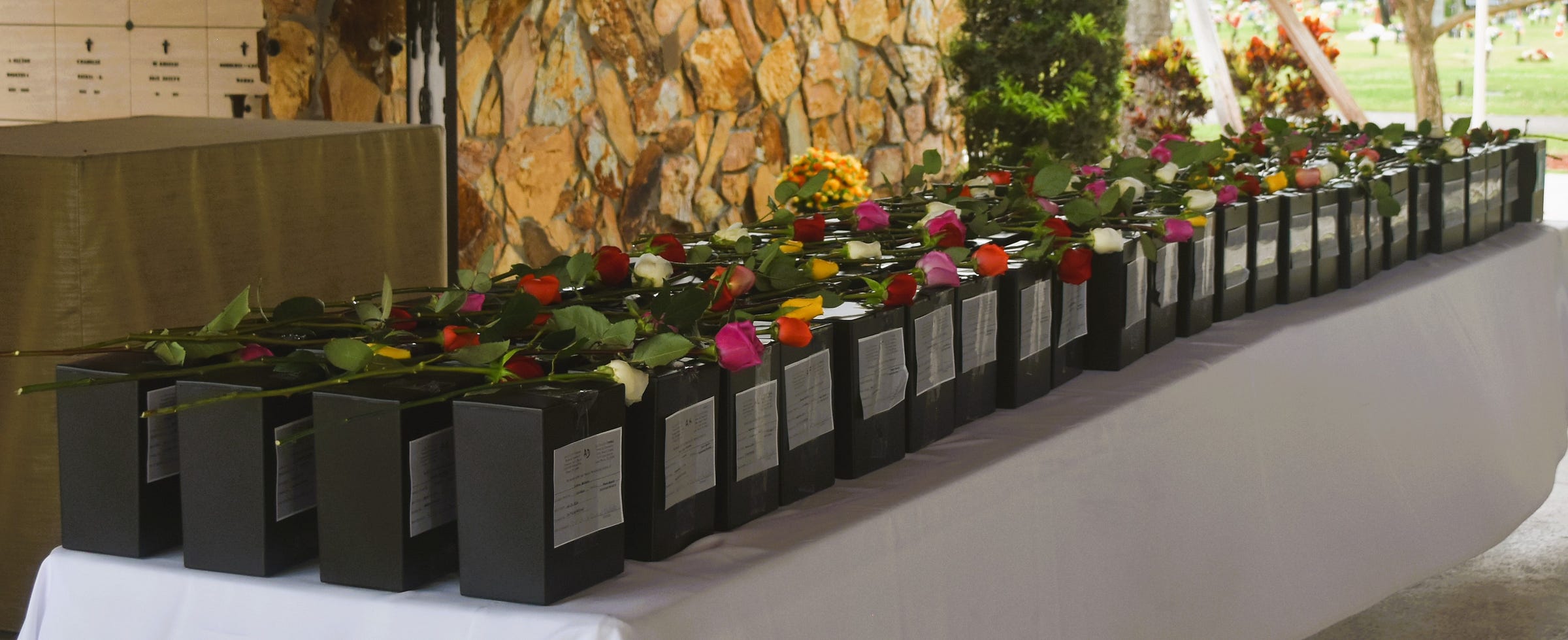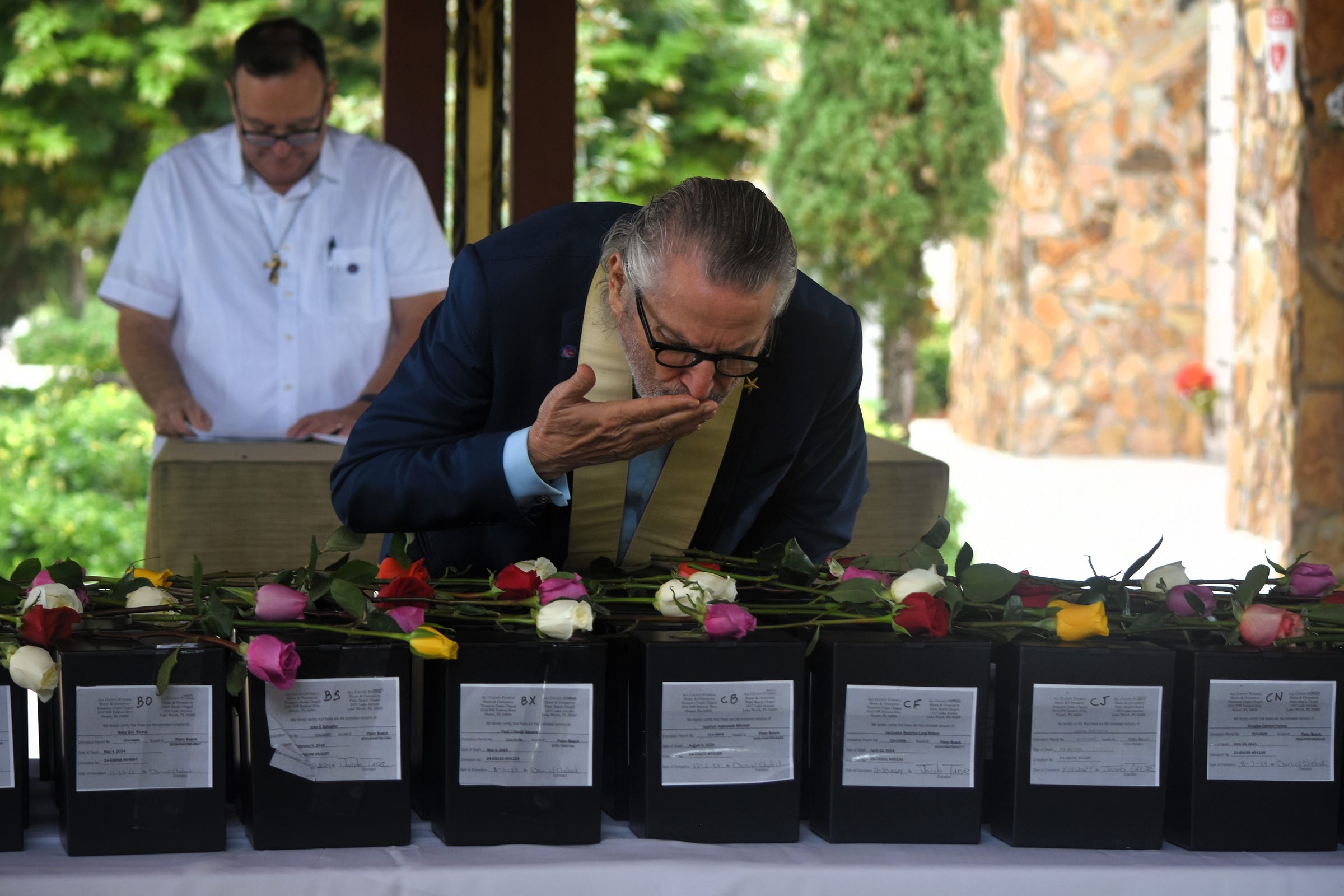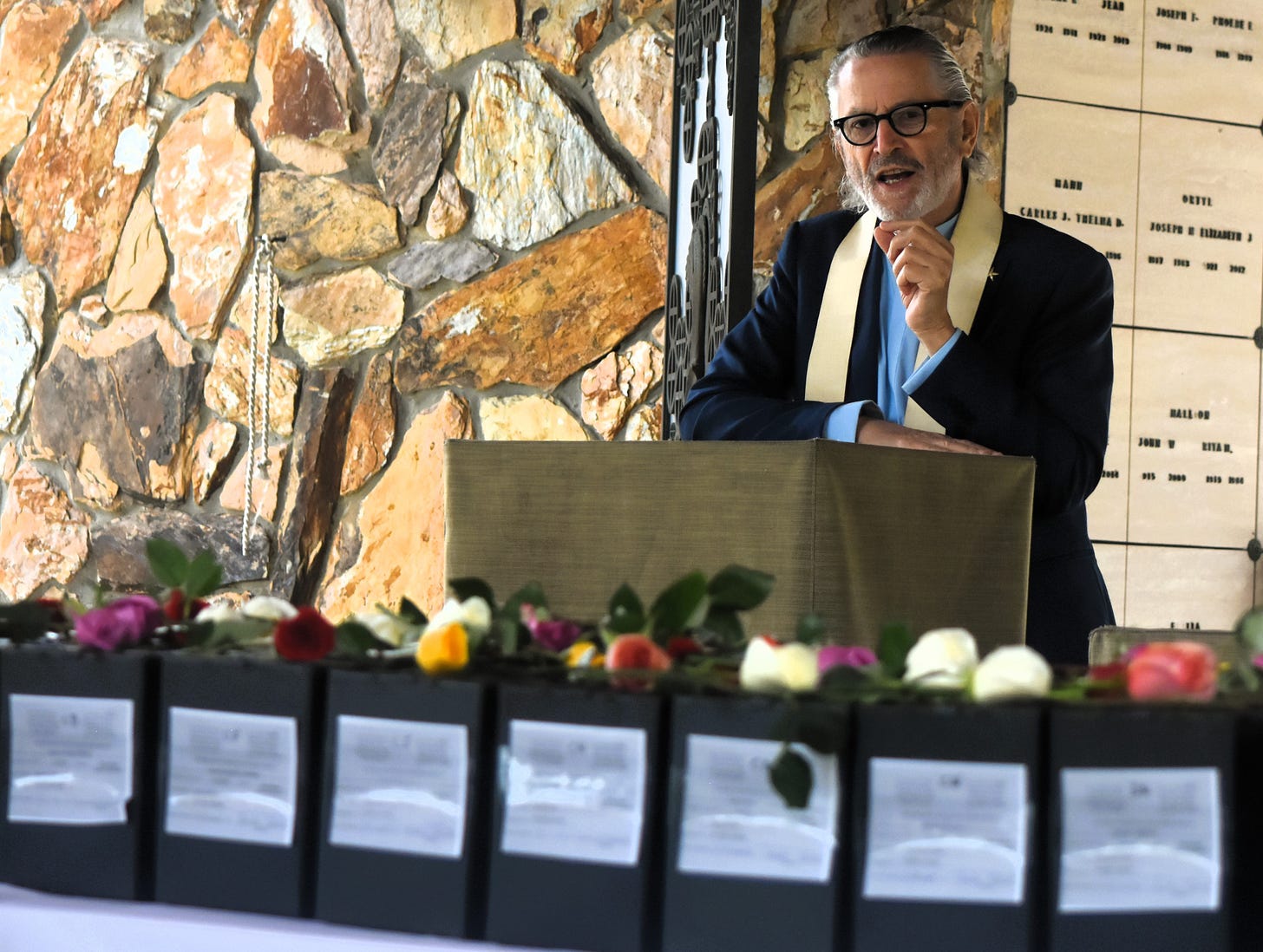A Place for Our Brothers and Our Sisters
Since 2011, hundreds of deceased individuals in Palm Beach County without known relatives have been given a dignified burial.

Dr. Rev. Gabriel Ghanoum, a local priest and the Spiritual Care Director at JFK Medical Center, was at work when a 100-year-old patient, without any known relatives, had died. What happened next would set him on a path to create a new ministry in Palm Beach County: He became her legal guardian and claimed her as his own.
“When there isn’t any family or friends to claim the ashes of the deceased, I claim them as my own family and see to it that they receive dignity and compassion in death,” he said.
That was nearly 15 years ago, and since then, Father Gabriel Ghanoum, along with the assistance of several volunteers, has claimed over 800 deceased individuals and given them a special burial at the Our Lady Queen of Peace Cemetery located in Royal Palm Beach.
For many of us, especially in Western culture, the subject of dying or death is a difficult topic. But the idea of dying alone is something else entirely: it’s incomprehensible, driven in part by our limited understanding of the dying process in addition to an innate longing for human connection, even in our final moments, when transitioning from one stage to the next.
And yet, dying alone is the reality for some individuals. When this happens, local authorities try to find family members or next of kin to claim the body. When none are located or come forward, the state must step in to make any final decisions about the remains. Each state, including Florida, has its own laws when it comes to unclaimed bodies. Often, the policies and procedures for final disposition depends on available resources.
Aside from legal issues surrounding unclaimed individuals, there’s also the subject of spiritual matters related to the importance of a proper burial. While funeral rituals differ between religions and cultures, most groups around the world do honor loved ones with a ceremony or an end-of-life celebration.
But who will honor the unclaimed?

In Palm Beach County, Father Gabriel Ghanoum claims them all—not simply a few select individuals, but each and every one. “I sign for the cremation of everyone that is unclaimed in the county,” he said. “All of them.”
The process of claiming deceased persons in the region and giving them a dignified burial depends on several factors, including the availability of the chapel’s cemetery off Southern Boulevard. “The remains must be in the funeral home for at least six months before they can be sent to the cemetery, just in case someone comes to claim them,” he said. “And after the six months, the cemetery enters each individual into the system.”
This ministry project, known as No One Buried Alone, schedules a memorial service four times a year where cremated remains are interred in a special crypt, thanks to a partnership between the cemetery, the Diocese of Palm Beach and the Palm Beach County Division of Human Services.
During each burial ceremony, which is held at the entrance to Our Lady's chapel, the names of individuals are read out loud as Father Ghanoum bends down to kiss each black container where the ashes of all ages, races and religious affiliations—including children and miscarried and stillborn babies—await their final resting place. Many of the dead are elderly from local nursing homes or homeless indigent people.
At each container, Father Ghanoum pauses to say “I love you.” These three words and subsequent burial are meant as one last act of compassion for those who may have needed it the most.
There are many moving parts to the success of this program and the story behind it, most notably the collaboration of the cemetery and county. But there’s also a handful of volunteers and countless donors that help make these ceremonies happen. Each person that participates in the NOBA program becomes surrogate family members to those who have died alone.
As for the special ceremonies that take place several times per year, those in attendance have played a part, in some way, in the end of life story of the unclaimed deceased. And after each service comes to a close, attendees walk together with Father Ghanoum and the cremated remains to the Compassionate Crypt of St. Joseph of Arimathea, where the ashes are interred to their final resting place.
The internment finishes with the song “My Way” by Frank Sinatra.
Kevin Goulding, a long-time colleague of Father Ghanoum at JFK Medical Center and photographer at several NOBA ceremonies, considers these moments to be evidence of our shared humanity. “In a world that often forgets the forgotten, the No One Buried Alone project gives quiet dignity and a final act of love, respect, and prayer to those who had none in death,” he said. “ Father Gabriel is a true servant of compassion.”
To learn more about the No One Buried Alone program or to donate or become involved, please click here: No One Buried Alone.



Beautiful article. How blessed this world is to have such a caring person as Father Gabriel and the many who support this wonderful program. We should remember to lift up these forgotten souls in our daily prayers.